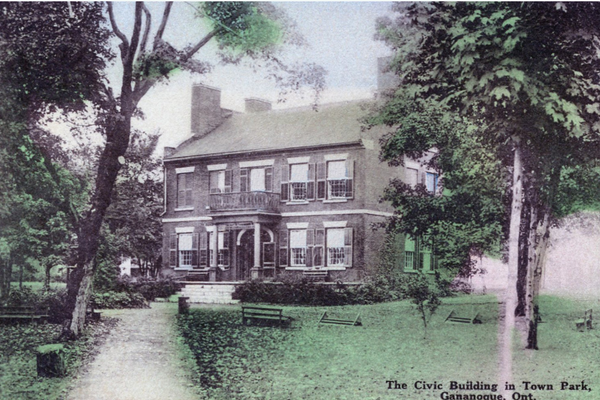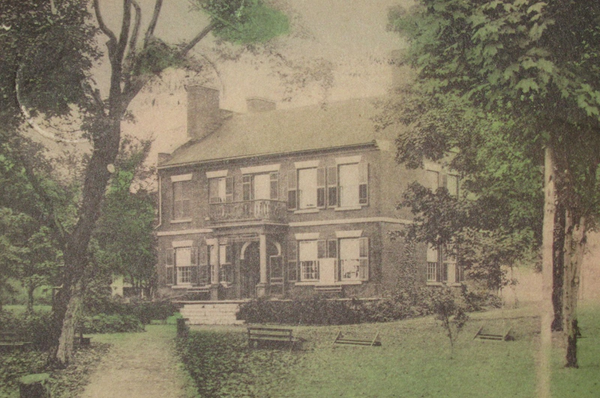Crunch Time, a short story
by: Chris Brock
It was a Saturday morning, which meant the day’s highlight for George Davis would be the big bowl of Cap’n Crunch cereal that he ate slowly, in the breakfast nook of the home in which he’d lived for more than 50 years.
It was the only day that he took breakfast in this spot – a savored, rationed treat – something to look forward to. The nook offered him an expansive view of County Route 47. His home was on a flat section of the road, across from corn fields, and he could see about a half mile down the road when he glanced out his large kitchen window.
He poured his cereal, delighted by the chime-like sounds as the nuggets scattered, as if hyped up by all the sugar, and then settled in the bowl. And as he waited for the milk to soak into his Crunch for just the right, slightly soggy consistency (three and a half minutes, exactly, timed by his pocket watch), he wondered.
He wondered what they did to Crunch to make it so delicious. And he wondered if he really needed his walker, which he took to about two years ago, on his 84th birthday, at the insistence of his daughter. He used it for a bit around the house, but mainly for the daily trips to his mailbox.
But what he really wondered about was the identity of the bicyclist, who like clockwork, rode by his home every Saturday morning on these summer days, at about the same time: 8:15 a.m.
George first noticed him by chance, the year before, when he let his cat in from outside and then, from the porch, saw the cyclist quietly glide by. The biker had a mesmerizing rhythm and was gone – a phantom of graceful wonder.
A few weeks later, again, on a summer Saturday at 8:15, he was making coffee when he happened to look out his window and saw a passing flash on the road. He hobbled to his door, opened it, and glanced down the road for another look. The cyclist rode what appeared to be a high-end road bike, like the ones he saw on TV in the Tour de France. Man and bicycle sailed like an arrow in a straight line away, down the road again, seemingly without a care in the world.
On the following Saturday, George had prepared. He stood in front of his window and waited. 8:15 passed. But at 8:20, the cyclist arrived, riding on by coolly in the bright morning sun.
He had set up his nest in the breakfast nook every Saturday since then. It became a place of inspiration. In the summer, as he sat and waited for the cyclist, he thought of his active days in the Adirondacks, when he could climb mountains with the best of them and canoe for miles in endless rivers.
His breakfast nook included his Adirondack 46er Patch nailed to the wall, his old hiking boots, which he put on the empty chair next to him, a flannel shirt he wore over his pajamas, a glass bottle of milk, the box of plain Cap’n Crunch, and a fancy China bowl passed down from his mother, to pour the goodness in.
It gave him comfort to know what was to follow. Even on spring and summer days like this, with a light rain, he knew he would see the cyclist.
On this day, when the rolling wonder arrived, it was 10 seconds of viewing at the most, but George drank it all in like a parched adventurer. Like the other times, he then sat at the table, closed his eyes, and reminisced about when he was active on the top of mountains and swimming in cool alpine lakes.
Sometimes, two hours would pass before George freed himself from his daydreams and he managed to get up from his morning nook. He would wake up with his head on the table from a pleasant dream, without any neck stiffness, which he found amazing. But as the days of the week passed, he found himself less limber, having to grab his walker later in the week, until Saturday morning came again and he was revived. And he had an audacious plan for the following Saturday.
-----
For Stanley Gardner, the weekly Saturday morning ride up State Street Hill, to Rodman, and Black River was a highlight of his training. There were lots of hills and a few easy flat sections to cruise along. He enjoyed riding solo, lost in his thoughts alone, sweating out his stress, and thinking about the challenges of the day and week ahead at the fishing charter company he owned.
His friends thought it was crazy of him to be so committed to these Saturday morning bike rides, when it was prime time for customers willing to pay a premium for an early Saturday morning fishing guide.
But Stanley loved the solitude of his Saturday morning rides of about 50 miles. He made sure to be back home and on the St. Lawrence River again for his paying customers in the early afternoon. For this, he needed to stick to his riding schedule like clockwork. He left at a little after 7 a.m. and pretty much made the same time, give or take a few minutes, depending on wind speed and direction.
Another thing he liked about the early Saturday morning rides was the lack of traffic. Sometimes, in the first few miles, he would see more runners and walkers than vehicles.
But he had never seen a man pushing a walker on a road in the middle of nowhere.
He saw the man, with a baseball hat and sunglasses, about a half mile ahead on County Route 47, shuffling in his direction in his lane near the white fog line. Stanley rode with traffic and the pair advanced toward each other. Except for a nearby house, it was a lonely stretch. As he rode closer, Stanley could see the man had a huge smile. Strapped to his walker was a water bottle like a cyclist would carry.
The man stopped in his tracks. Stanley swerved left and glided on by.
The man gave a huge wave. “Hello!” he called, as his head pivoted to track Stanley down the road. The man also pivoted with his walker, watching Stanley ride out of sight. Looking over his shoulder, Stanley gave a polite wave back, smiled, shifted into a lower gear, and sped away.
****
“What do you think about that?” Stanley asked one of his charter customers later that day. He liked making small talk with them that wasn’t related to fishing. “I mean, this old guy in the middle of nowhere, waving wildly at me.”
“Maybe he needed help,” the customer, a first-time River fisherman from Cleveland, said.
“He didn’t appear to need it,” Stanley said. “He looked like he was having fun.”
“If you see him again, maybe you should stop and ask,” the customer said.
“I have a business to run,” Stanley said. “But anyway – I doubt I’ll see him again.”
A week later, his Saturday bike ride and near where Stanley previously had seen the old man, he noticed a particular house that had several cars parked around it, and people milling about, in front and back. He rode on, but was stopped at the next intersection by a state policeman, posted with his cruiser at a road block.
“Have you seen an elderly gentleman about?” the officer asked Stanley.
“Not today, but last week,” Stanley said. “One was out in the road around here with his walker.”
“Well, his walker is missing too,” the officer said, waving Stanley on through.
They found George Davis about 24 hours after he went missing, on the Black River Trail in an electric wheelchair that had become bogged down in a muddy patch. Earlier, from his home, he apparently had made it out to the road again on his walker, where he met an Uber driver, who took him to a medical supply store where George bought an electric wheelchair. The driver then dropped him off at the trail. George paid her well.
At about the 2-mile mark of the trail, George got stuck when he ventured off course while gazing at a solo cardinal in a pine tree. He spent the night stuck there, but he was well supplied. His hiking travels in the Adirondacks had taught him to always be prepared for such adventures. He covered up with a blanket he had brought. A bottle of lemonade and a couple of granola bars got him through the night. A man walking his dog came upon him early the next morning and called the authorities.
Later, George had to persuade his daughter that he was still fine to live in his home and he wouldn’t attempt such escapades again.
Stanley read about the incident in the Waterville Daily Times, with the headline, apparently meant to be tongue-in-cheek: “Elderly, feeble man goes on adventure with Uber, electric wheelchair.” He could not help but to admire the old man’s determination. It dawned on him that he knew who the man was.
It was now late September, and the times for Stanley’s weekly bike rides were adjusted a bit due to the sun rising later. But when he rode by George’s house the following Saturday, he stopped and got off his bike, with a deep urge to meet this newsworthy adventurer. At that moment, George was patiently waiting for his cereal to reach the right consistency.
George leapt up from his nook when he saw the bicyclist approaching. Stanley’s cycling shoes clicked like deer hooves on the wood porch floor when he approached the screen door, where George met him. There was no need to exchange introductions.
“I’m just about to have some breakfast,” George told Stanley, opening the door to greet him as if welcoming a friend not seen in years. “And I’ve got a new flavor of Crunch! Join me. I wonder if we may have a lot to talk about.”
Stanley wondered too; mainly about what his fishing charter customers would think about him being late, but also about what this man, and this crunch talk, was all about.
The marina owner noticed the pair of fishermen waiting on the dock at Stanley’s boat. It was 2:30 p.m.
“Something must have happened to him,” the marina owner told the anglers. “Stanley is usually punctual. I haven’t heard from him.”
Stanley arrived about an hour later, with no excuses, or at least none he wished to share. But to make up for his lateness, he took his customers out onto the River for free, for a shortened day of fishing. As they cast their lines into the setting sun, Stanley thought of the old man’s tales of adventure, the advice, and the wise words he had shared.
For hours, they kept casting, with no luck and without Stanley telling them something that he now knew for certain: They should all be casting deeper, into the void.
By Chris Brock
This is Chris Brock's nineth fiction piece for TI Life. Chris is the features writer and a copy editor at the “Watertown Daily Times” and on the WDT's NNY360.com where he has won several writing awards. Writing humorous short stories is a hobby. He grew up on the St. Lawrence River community of Waddington, N.Y. His "Those Carp People and Other Tales of Life Along the St. Lawrence" is his most amusing book and it is available on amazon.com. (Always a perfect Xmas Gift for a River Rat.) Click Here to see his other TI Life works and here.
Editor's note: We apologize if you tried to see this first and it was not there - maybe a glitch for Xmas - but more likely the editor's fault! But it is here now so enjoy!




